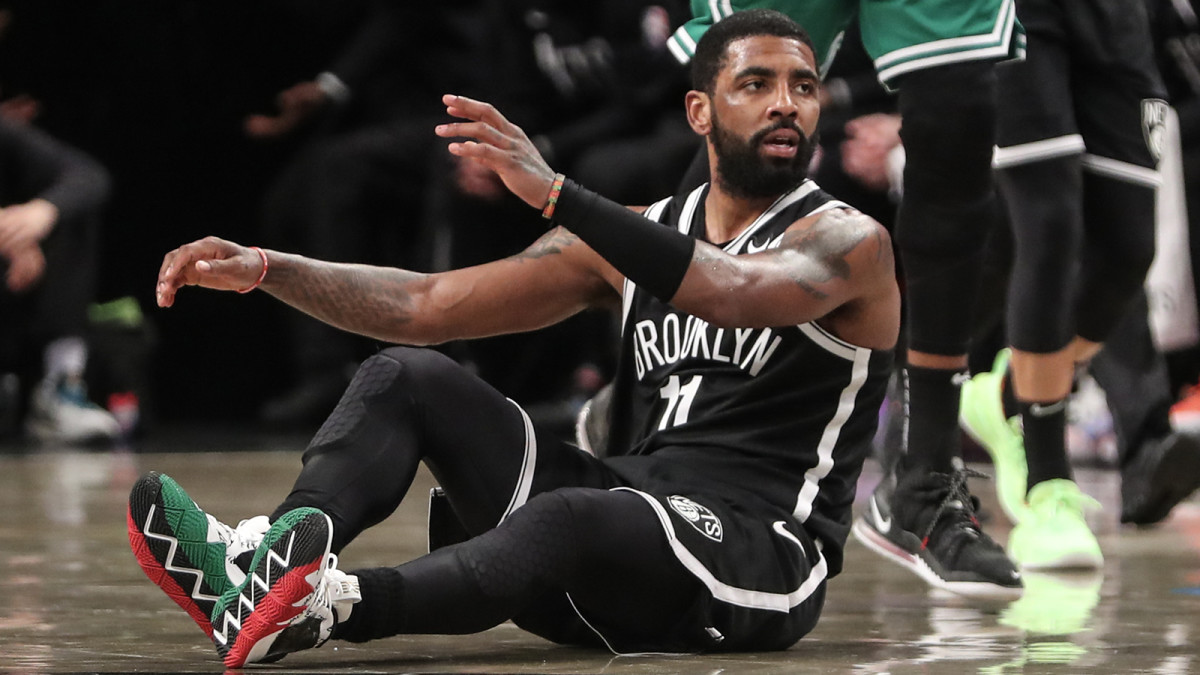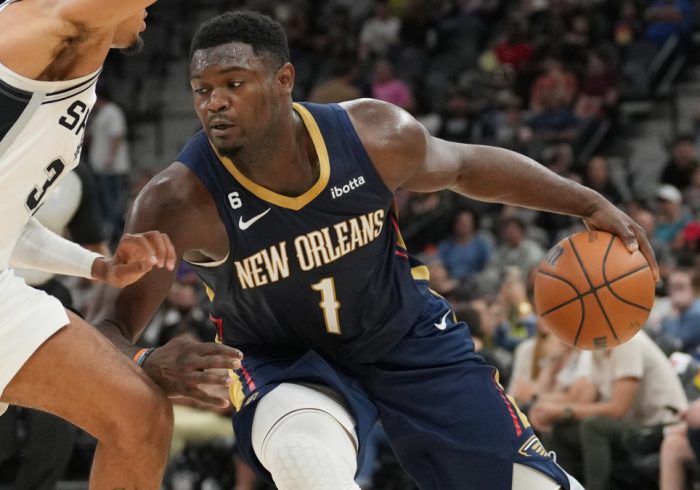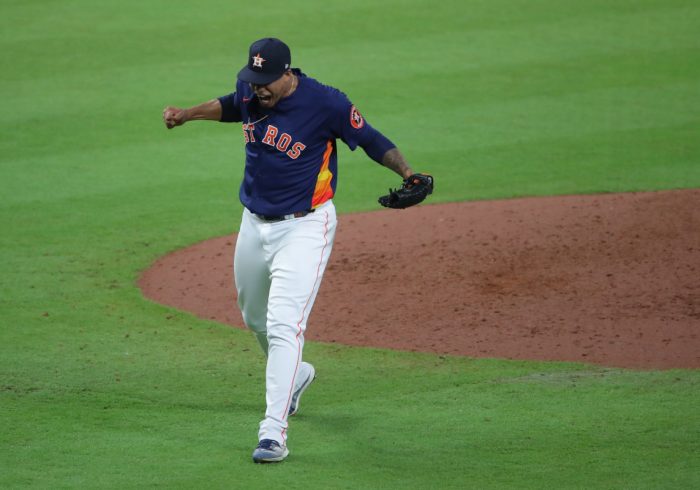The Nets played a game without Kevin Durant on Thursday—the first of what will be many in the weeks to come—and it went about the way you’d expect.
Kyrie Irving scored a bunch (but not enough). Ben Simmons made many beautiful passes (but did not score at all). And the Nets lost at home to the Celtics, a team that has routinely tortured and taunted them for the last two seasons. Final score: 109–98.
It was just Brooklyn’s third loss in seven weeks, a rare road bump amid a renaissance season in which the Nets have magically transformed from dysfunctional to dominant. But it looked more like a warning sign, a reminder of past failures and still-lingering frailties.
There was Irving, desperately trying to take over down the stretch, missing 7 of 10 shots in the final quarter. There was Simmons, attempting just three field goals all night, missing all three of them, while repeatedly passing up shots any average player—and surely any established star—would happily take.
There were the Nets, demonstrating once again that—for all their collective star power, their soaring payroll and their unwavering swagger—they are thoroughly dependent on Durant for any consistent success.
This might pose a problem now, as Durant will be out for a minimum of two weeks, and perhaps much longer, while he recovers from a sprained right knee. It would be an exaggeration to say the next few weeks will define the Nets’ season. But it will surely reveal quite a bit about their character and their resilience.
Their revival this season, after a dismal start, has been nothing short of spectacular. Jacque Vaughn has proven to be the right coach, the right voice, after replacing Steve Nash. Irving has been spectacular, efficient and most notably, not a distraction since returning from an eight-game suspension triggered by his promotion of an antisemitic film. Simmons has been steady as the lead playmaker. And a bunch of guys got healthy along the way, including T.J. Warren, who’s simply become the Nets’ best scorer off the bench.
A lot has gone right these last seven weeks, all of it significant. But really, the Nets’ rise is about one factor above all others: Durant, who’s playing at an MVP level in this, his 16th season, at age 34. Durant makes everything else work, makes everyone around him better, and takes all the pressure off his two frequently flaky co-stars.
Now they have to survive without him, for an undetermined stretch of games. And, as we’ve learned repeatedly in recent years, the Nets generally aren’t very good when Durant is in street clothes. They went 3–9 last season when Irving and James Harden played without Durant, and 1–5 when Irving was the solo star. In 2020–21, they posted a 20–9 record when Irving and Harden played without Durant, and 6–4 when Irving was the solo star. They went 8–12 in the 20 games Irving played his first season in Brooklyn, all without Durant, who missed the whole year while recovering from Achilles surgery.
The Nets will have to lean on Kyrie Irving with Kevin Durant out with a knee sprain.
Wendell Cruz/USA TODAY Sports
This Nets squad is bigger, deeper and stronger than the one that disintegrated without Durant last season. They are surely better equipped to maintain some degree of success this time. But if they were determined to prove their legitimacy as a contender, Thursday’s game was a bad start. The Celtics were also missing a star player (Jaylen Brown), got a blah performance from their primary star (Jayson Tatum, who had 20 points on 7-for-22 shooting) and were playing the second night of a back-to-back, on the road, while the Nets were well-rested.
The schedule won’t provide many breaks. After a home game Sunday against the surprisingly competitive Thunder, the Nets leave for a five-game trip that includes stops in Phoenix, San Francisco and Philadelphia. There will be several more key tests in the weeks leading to the All-Star break, with no assurance that Durant will be back.
This isn’t to say that the next four weeks could make or break the season; at 27–14, the Nets have built themselves a nice cushion, regardless of how this Durant-less stretch goes. They could lose a big chunk of games without him and still conceivably hold onto a top-six spot in the East. But this isn’t a team with any history of postseason success, or any reason to think they can make a deep run without home-court advantage, to say nothing of trying to knock off the Celtics or the Bucks or the Sixers in the first round. There absolutely is something at stake in these next few weeks.
But more than that, the Nets will soon learn whether this latest superteam experiment was worth the trouble. Can Irving carry them for two weeks—or three, or four—without Durant to lean on? Can he sustain the scrutiny and the spotlight without creating some random new firestorm? Can Simmons, who shows absolutely no interest in scoring anymore, summon the confidence and aggression that once made him a star in Philadelphia?
There are more far-reaching questions in play here, too: Can Irving, who will be a free agent this summer, prove himself worthy of another max contract from the Nets? Or, for that matter, from any other team? Will the Nets’ decision makers see enough to justify continuing this experiment? Or more reasons for dismantling it?
We’ll have those answers soon enough. And then, perhaps, we’ll know just how legitimate these Nets really are.


